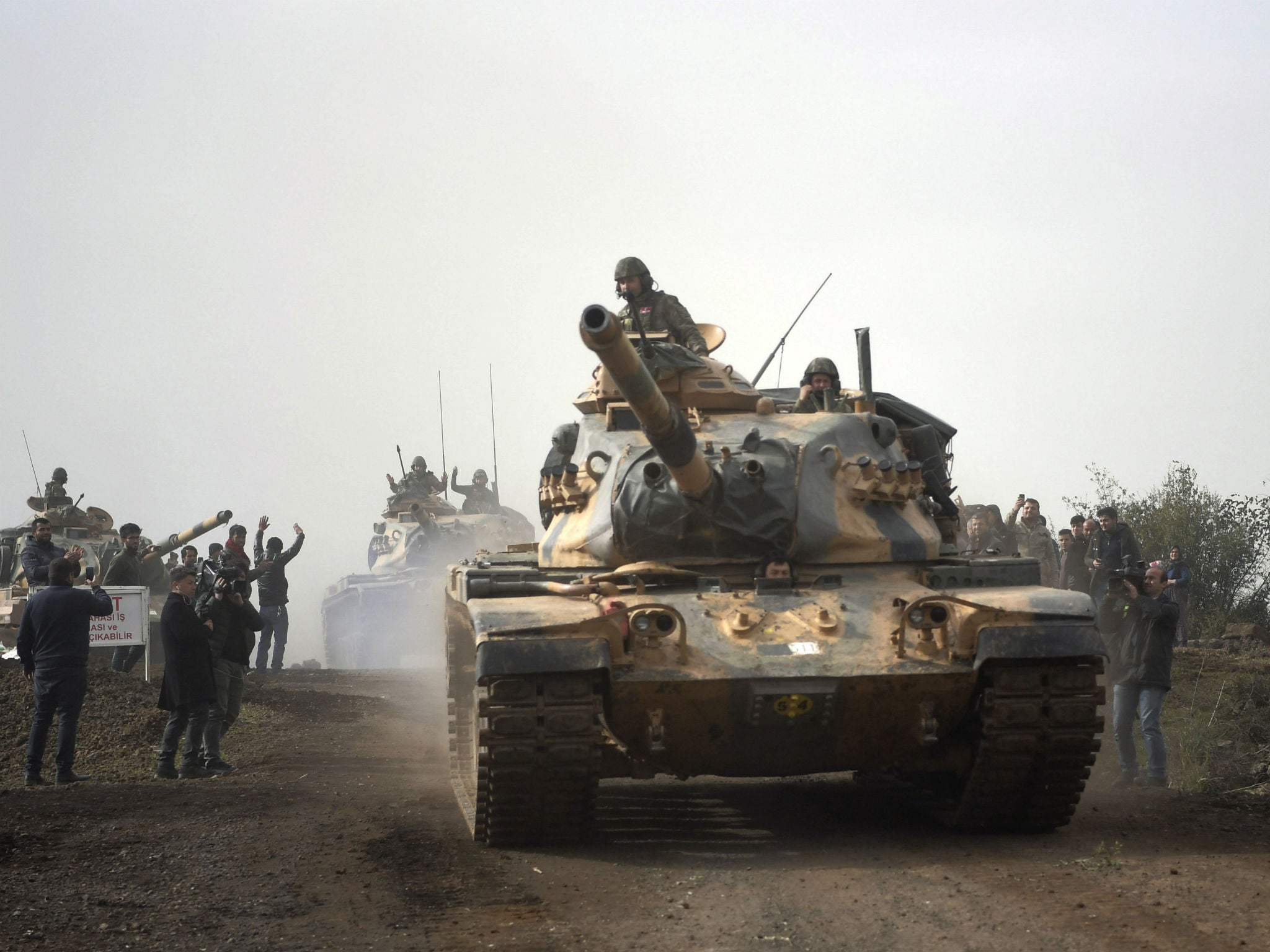Manbij becomes key as US looks to rein in Turkey's Syrian offensive
Prolonged clashes with Turkish forces may suit Kurdish fighters who want to increase international pressure on Ankara, but it is something Washington wants to avoid

Your support helps us to tell the story
From reproductive rights to climate change to Big Tech, The Independent is on the ground when the story is developing. Whether it's investigating the financials of Elon Musk's pro-Trump PAC or producing our latest documentary, 'The A Word', which shines a light on the American women fighting for reproductive rights, we know how important it is to parse out the facts from the messaging.
At such a critical moment in US history, we need reporters on the ground. Your donation allows us to keep sending journalists to speak to both sides of the story.
The Independent is trusted by Americans across the entire political spectrum. And unlike many other quality news outlets, we choose not to lock Americans out of our reporting and analysis with paywalls. We believe quality journalism should be available to everyone, paid for by those who can afford it.
Your support makes all the difference.The US is trying to prevent the fighting in Afrin between Turkish forces and Syrian Kurds spreading east into the main Kurdish enclave in Syria where US troops are based. Turkish President Recep Tayyip Erdogan has threatened to drive the Kurdish People’s Protection Units (YPG) fighters not just from Afrin, but from Manbij, a strategic town west of the Euphrates.
“Terrorists in Manbij are constantly firing provocation shots,” said Turkish Foreign Minister Mevlut Cavusoglu. “If the US does not stop this, we will stop it.”
Some 6,000 Turkish troops backed by 10,000 Free Syrian Army fighters controlled by Turkey are seeking to fight their way into the isolated Kurdish canton of Afrin in northern Syria. Their progress has so far been slow, with thick cloud hindering air strikes in the hilly terrain. The YPG and Turkish-led forces have been fighting for the Bursaya Hill, with the summit, which overlooks the eastern side of Afrin town, changing hands several times.
The US has so far given muted support to its Kurdish allies in Syria, who provided the ground troops for the successful campaign against Isis. The US has supported the YPG during the war against Isis with massive air power, military equipment and some 2,000 specialised US troops.
The US is hoping to keep the present fighting confined to Afrin, which is separate from the bulk of Kurdish territory. There have never been any US military forces in this enclave, though there were Russian observers that have now been withdrawn. But if Turkey attacks Manbij then the US will have to decide if it is going to be seen as betraying its Kurdish ally or risk a military confrontation with its Nato partner Turkey.
The Kurdish authorities in north-east Syria are calling for a mass mobilisation in defence of Afrin. But they already have large numbers of experienced combat troops previously fighting Isis that they can deploy if they wish. “The Turkish state has been trying to enter north Syria for days, but it will not be able to,” said Siyamund Walat, a YPG general. “We have forces in Afrin, thousands… they are protecting the border and the people. If necessary all the soldiers will go to Afrin.”
It may be in the interests of the Syrian Kurds to prolong the fighting in Afrin so international diplomatic pressure increases on Turkey to end Operation Olive Branch, as it calls its campaign. On the other hand, Afrin is cut off from the rest of the Kurdish-held area and the one supply road to the south is held by the Syrian Army. Syrian soldiers have been refusing to allow refugees from Afrin through their checkpoints to reach Kurdish areas in Aleppo city 25 miles away.
The Turkish campaign only became possible when Russia agreed not to oppose it and, above all, allowed Turkish jets to operate in Syrian airspace. This is under Russian control west of the Euphrates. The long-contemplated Turkish assault was finally provoked by the US announcement last week that its forces would be staying in Syrian Kurdish territory for the foreseeable future. This de facto guarantee of the Kurdish statelet, directed against the Syrian government and Iran by the US, radically changed the strategic balance in Syria. The US had assured the Turks since the end of 2014 that its military cooperation with the YPG was purely tactical, directed against Isis and would end when Isis was defeated.
Mr Erdogan is taking advantage of a wave of patriotic support in Turkey for the Afrin operation to arrest dozens of politicians, journalists and activists who are accused of criticising the offensive. Many of those arrested, often for critical media posts, belong to the pro-Kurdish HDP party. “Journalists are having their doors rammed down without anybody knocking,” said HDP spokesman Ayhan Bilgen. “People are [becoming] afraid of keyboards, pens, words and writing”
Join our commenting forum
Join thought-provoking conversations, follow other Independent readers and see their replies
Comments